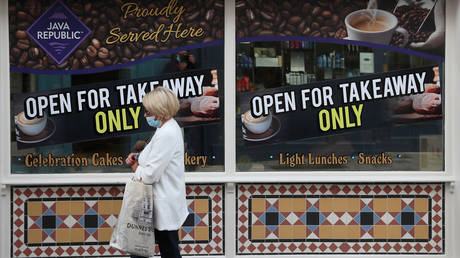
As coronavirus cases rise rapidly in the country, Ireland’s Health Service Executive has admitted its system cannot cope and has resorted to advising infected individuals to identify their own potential contacts.
The Irish app, which launched in July, cost around €850,000 to develop and has estimated annual running costs of €350,000-400,000. While this is significantly cheaper than the tens of millions spent by the UK, the failure of the app to function effectively raises concerns that taxpayers’ money has been wasted, with Dr Maitiu O Tuathail, an Irish GP and a clinical lead at Safetynet Primary Care, declaring that “contact tracing has essentially collapsed.”
Niamh O’Beirne, the national lead for testing and tracing, admitted to RTE radio that “we simply couldn’t get to everyone” due to “unprecedented demand on the contact tracing centers.” David Cullinane, health spokesperson for Ireland’s main opposition party Sinn Fein, accused the Irish government of having “dropped the ball” despite having “had five months to get us prepared for the second wave.” Cullinane blamed the slow response from the Irish government for leaving people in the country “exposed,” fearing outbreaks have been and will be missed due to the issues with the test and trace system.
Earlier this year, the Irish government hired hundreds to contact people who test positive and identify individuals with whom they might have had close contact, in order to ensure they self-isolate and get tested. But with the five-day average number of infections in Ireland nearly tripling since the start of October, there haven’t been enough staff members to cope with the workload. In response to the recent issues, the Health Service Executive has pledged to increase the number of employees working on its system, adding 800 people to its staff of 400.
As of Monday, Ireland had imposed coronavirus restrictions that are believed to be some of the strictest in Europe, as non-essential businesses and restaurants have been closed, and only essential travel allowed. On Wednesday, the European Centre for Disease Prevention and Control listed Ireland as having the 13th highest infection rate over the last 14 days out of the 31 countries that it monitors, with 270.8 cases per 100,000.
Think your friends would be interested? Share this story!




